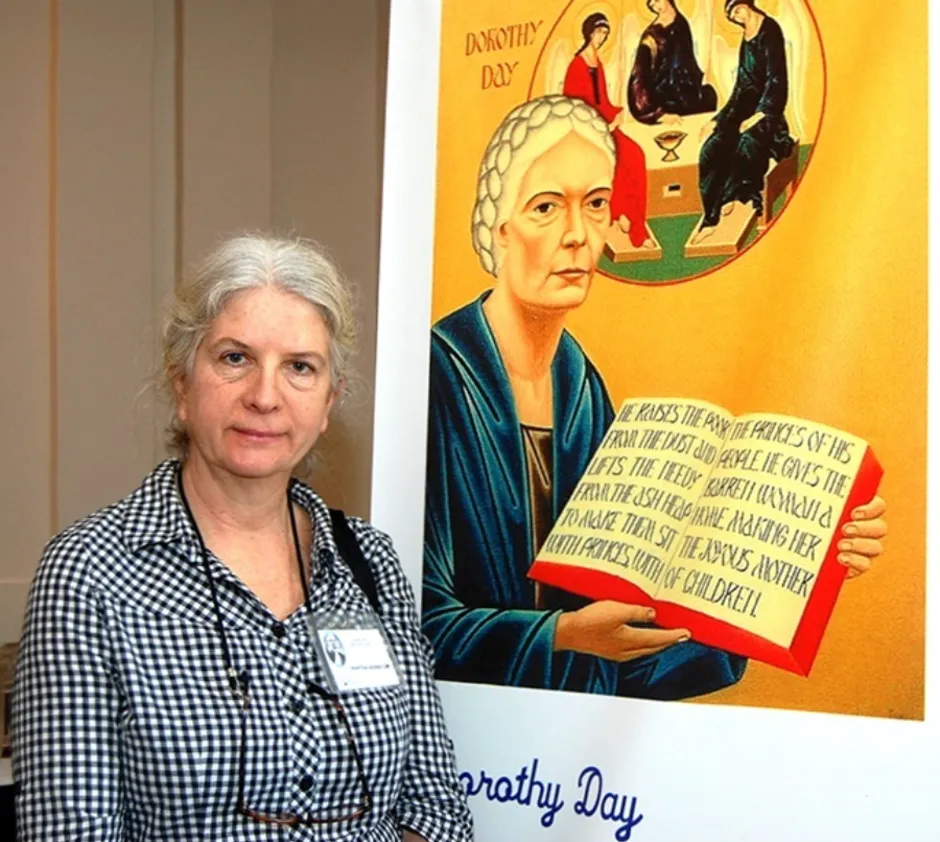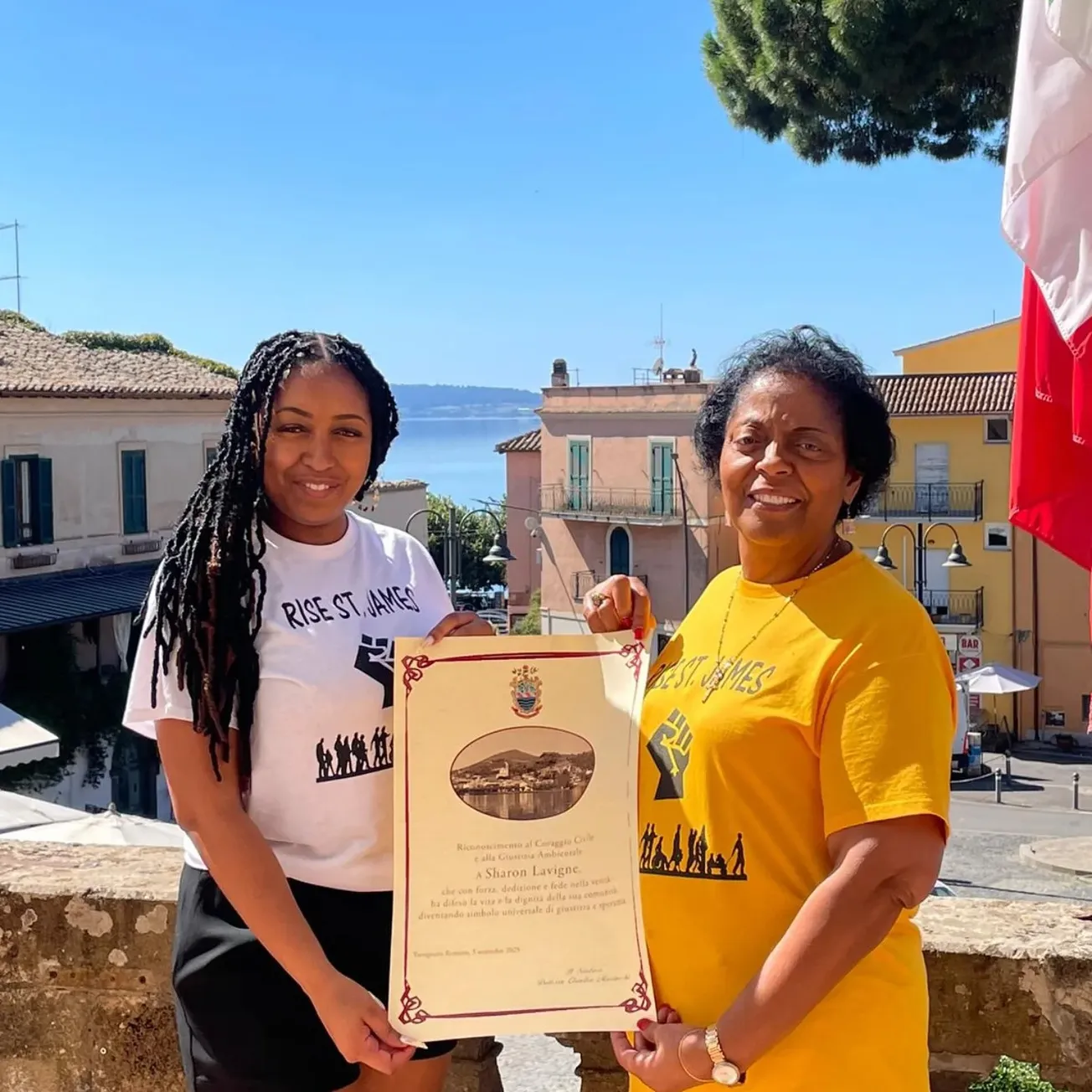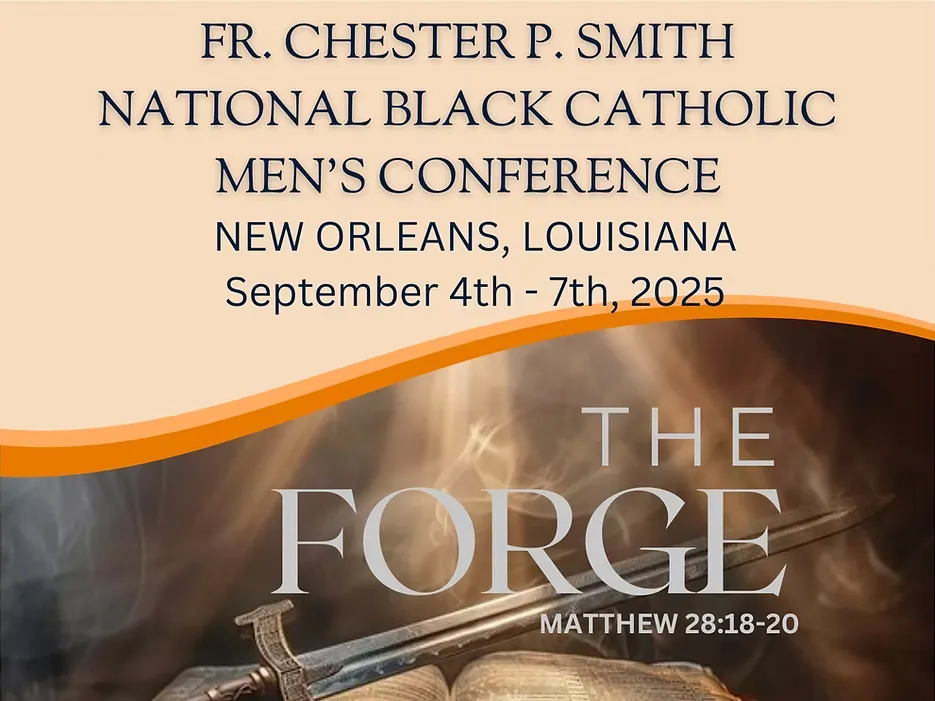The 10th National Eucharistic Congress (NEC), scheduled for July 17-21 in Indianapolis and spearheaded by the U.S. bishops, is expected to bring upwards of 50,000 attendees to what is being billed as the pinnacle of a “movement” in U.S. Catholicism—hearkening back to spiritual vigor of old in what is now an increasingly areligious American society.
Much ado has been made of the need to encourage more believers stateside to affirm the Real Presence of Jesus Christ in the Eucharist, a theme that has become a centerpoint in Catholic discourse on the culture wars at large. It is thought that a specious 2019 Pew Research survey on the doctrine was the main motivation of the entire Eucharistic Revival, which culminates in the landmark gathering this summer in Indiana.
Less discussed, for sure, is another important aspect of the presence of Christ: that which is found in the poor and marginalized. It is not a hyper-focus of the U.S. episcopate as is doctrine, obedience, and even politics. In fact, recent developments indicate that the highest leaders of the U.S. Church are in some respects hostile toward a certain form of outreach that prioritizes justice and human development.
Perhaps it’s no surprise, then, that a speaker of the likes of Martha Hennessy—the granddaughter of Catholic Worker Movement co-founder Servant of God Dorothy Day—was initially not invited to speak at the NEC, whose lineup is chiefly composed of the usual suspects. (Think EWTN, Steubenville, Theology of the Body, and all things “anti-woke.”)
In a conversation with BCM, Hennessy says she was twice denied when she requested a slot to speak at the event. There was apparently precious little interest in the all-too-prescient call her ancestor echoed nationwide during her life.
The NEC organizers relented this spring, however, for reasons as yet unknown. Hennessy, 69, who like her grandmother has been active in the anti-war, anti-poverty, and Catholic Worker movements throughout her life, was invited in April to lead a 10-minute breakout session on Friday, July 19, at the Congress. She says she will stick to a simple message inspired mostly by the words of Day herself, who spoke (mostly against war) in 1976 at the 41st International Eucharistic Congress in Philadelphia just a few years before her death.
“We're unchurched in so many ways… What does the body and blood of Christ mean when it literally enters into our bodies? Yes, we need to take a look. and talk and share. I can't say that I fully understand the Eucharist other than what Dorothy showed us. The Eucharist is in the poor,” Hennessy said, cutting against attempts to reduce Christ’s presence to a disembodied host or inward-focused religious outlook.
“[My] words have to come from Dorothy Day because if they want to refute what's being said, they can go right up against her, not me. What's the definition of the Eucharist? What’s the definition of ‘We are one another’? It’s the houses of hospitality. It's the personalism. It's the nonviolent practice of the Gospel. Condemnation of war in all of its forms.”

Hennessy also noted the current division in the U.S. episcopate and among American Catholics more broadly, a divide often spoken of in terms of adherence to a select few Church teachings. She highlighted recent discussions within the U.S. Conference of Catholic Bishops (USCCB) on the future of their anti-poverty arm, the Catholic Campaign for Human Development (CCHD), which has come under increasingly heavy episcopal scrutiny.
“A minority is trying to axe that because it's such a good program, and it was very popular,” Hennessy told BCM. “It was bringing in a lot of the donations.”
During the bishops’ annual spring meeting this April in Louisville, the program received odes of support from several bishops, though with uncertain effect; Hennessy watched their comments on livestream while in the city for the inaugural Peacemaker Award ceremony with the Dorothy Day Guild, which promotes her grandmother’s cause for sainthood.
(Since our conversation, the bishops officially announced sweeping layoffs within the CCHD’s parent department, the Department of Justice, Peace, and Human Development—which has now been renamed as the Department of Justice and Peace.)
“A lot of bishops stepped forward [at the spring meeting] and said look, this is a good program,” Hennessy told BCM.
“I believe that the National Eucharistic Congress has the capacity to have the same experience… I'm just hoping that these contentions can fall by the wayside and people really can feel the spirit of the Eucharist in this gathering. I'm hopeful that there'll be a lot of good things that come out of it.”

Other promoters of Day’s legacy have also kept a close eye on the NEC, given its historic nature and the potential for wide-reaching impacts on the American Catholic populace. Leaders in the Catholic Worker Movement noted Hennessy's addition to the Congress schedule upon its announcement this spring.
“We are excited that the vision and mission of the Catholic Worker will be shared with so many attendees!” they shared on their website, inviting their fellow Catholic Workers to attend and celebrate.
As Hennessy noted, her presence at the gathering will in some ways channel Day herself and her timeless message of peace, but the head of her sainthood cause says Hennessy’s own importance as an activist can’t be forgotten.
“I think it’s to Martha's credit, and to Martha's own leadership as an important voice for our Church today, that she took the initiative to want to be present at that meeting,” says Dr. Kevin Ahern of Manhattan College, a theology professor who chairs the Day Guild.
“It's easy to have Dorothy overshadow her, as is natural, but Martha has been a leader and an important voice in the church in her own right.”

Ahern says including thinkers like Day herself is important to a more enlightened form of “Eucharistic coherence,” a neologism that emerged in 2021 during national political controversies over whether progressive Catholic politicians should be able to receive Communion.
Effectively answering “no,” a number of more conservative U.S. bishops took up the phrase as a defense of their position, which was crystallized in a teaching document released by the USCCB the same year, just months after the Eucharistic Revival was announced.
“In considering the Eucharist and Eucharistic ‘coherence,’ the word that they use, it's a bit strange to not include issues of peace and nonviolence. It's also a bit strange to not talk about the prophetic call to fight against structural violence, like racism and war and other forms of dehumanization,” Ahern said, touting what Hennessy can bring to the NEC.
“I think there's a lot more that can happen to connect Dorothy's legacy with the Eucharist. That, I would hope, will help to offer participants in the Eucharistic Congress other perspectives on what they're celebrating and how they're honoring God in that space.”
With the Congress now less than three weeks away and the speakers’ lineup unlikely to change, it can be said that a peculiar crew will be present. A U.S. military general from the Air Force will speak. So will more than a dozen bishops, priests, and laypeople known for invectives against a certain form of social justice. At least a handful have also endorsed condemnations of Pope Francis’ ongoing Synod on Synodality, if not dismissing it directly themselves.
Nevertheless, something like a voice crying out in the wilderness, a few outliers will carry a different message, a new commandment. One of them will bring the words of her late grandmother, counted among the most powerful activists and Catholics in American history.
Nate Tinner-Williams is co-founder and editor of Black Catholic Messenger.











